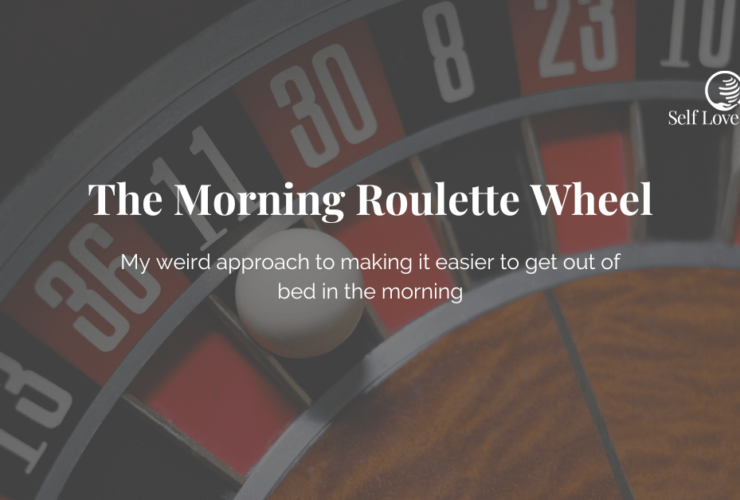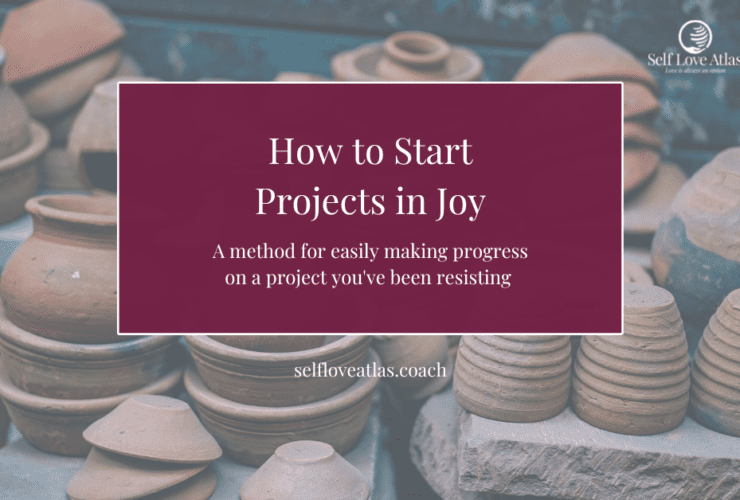8 Tips for Surviving an Overbooked Schedule
In 2018, I stood in a tiny room with blue expo markings stretching wall to wall on a white board. The words were a long list of my involvements, jobs, and classes: a complete map of my overbooked schedule.
All I really wanted was to be able to “do my best” at everything on my list, but as I stood in front of the board, I noticed I was distributing my energy in a lot of different directions.
It kind of felt like I was playing tug of war with multiple people at the same time. When I started to gain ground in one direction, I’d fall behind in another. This inherently meant that I couldn’t dedicate maximum energy to any of the things on my list.
While I was doing the best I could with the energy I had, my well-being and overall mood/motivation was actively declining.
Since there was only so much I could do in a day, I was unknowingly letting some of the more important things (like taking care of my health) fall by the wayside.
In exchange for doing as much as I could in my life, I was beginning to neglect my body’s health and needs.
Later, I’d learn that this is EXTREMELY common among people with busy schedules.
Why?
Because we live in a culture that encourages us to maximize our productivity, even if it’s at the expense of ourselves.
Why?
Well there are a number of reasons, but one of them is that it is profitable to people in power (i.e. capitalists) when working class and middle class individuals “work hard” at the expense of themselves. So, this behavior is widely encouraged in our culture.
For more on this, look into the concept of “internalized capitalism”. Definitely hold on to your hat when you get into that rabbit hole, it’s a wild one. There’s a lot that goes into this concept that I can’t cover in this short post, but to put it simply, internalized capitalism seems to lead people to believe that “because there’s more to be done, what I’m doing isn’t enough”.
In other words, people blame themselves and feel guilty when they don’t maximize their productivity/competitive edge, which leads us to pack our schedules and overbook ourselves… leading us to feel highly stressed and overwhelmed.
All because it’s culturally viewed as “good” to do so.
Speaking from experience, complying with this cultural standard can wreak havoc on your quality of life.
The thing with overbooked schedules is that they are by definition imbalanced. If you have too much on your plate and you’re feeling overwhelmed, highly stressed, exhausted, depleted, etc., then odds are you’ll eventually either see a decline in your well-being or you’ll “crash” and find yourself feeling unable to do anything (i.e. burnout).
To personally get off of this miserable burnout train, I had to figure out how to better manage what was already on my plate.
Through trial and error, I’ve found a number of things that really help with surviving an overbooked schedule (and eventually escaping one).
Note: These are meant to be survival steps: things we do when we’re already in the thick of our overbooked schedule. However, these are not enough to create a well-balanced and sustainable lifestyle. This is not a substitute for setting healthy limits for your involvements/responsibilities, boundary setting, leaving toxic relationships or jobs, starting new healthy habits, or anything else that may help with achieving a more balanced and emotionally nourishing lifestyle.
Here are 8 tips to surviving your overbooked schedule, avoiding burnout and maintaining your health through challenging times.
1. Respect the BRAC.
I was recently reading a book called “Daring to Rest” by Katherine Brody, when I learned of something called the Basic Rest Activity Cycle. It’s kind of like our sleep cycle, where deeper sleep corresponds to a difference in our brain wavelengths, except it supposedly happens while we’re awake. It’s an ultradian rhythm of approximately 90 minutes (80–120 minutes) characterized by different levels of excitement and rest.
To put it simply, your brain physically isn’t meant to run at 100% capacity through all your waking hours. If you get a wave of exhaustion, it’s probably because you’re in the low frequency brain wave period of the BRAC.
Allowing yourself to be “slower” or picking a low mental energy task for a period of about 20 minutes will allow your brain to recuperate from the high productivity phases and help you be more productive in the hour that follows.
If you push yourself to remain at your high productive pace 24/7, this will deplete your energy and your finite amount of willpower for the day.
In other words, when your energy dips, allow your productivity to dip a bit, or take a short break (approx. 20 minutes), this will allow you to come back better and get more productivity out of your energy for the day because you won’t be fighting against your own natural brain wave cycles.
2. Pack snacks
Sometimes when people are overbooked, they forget to eat, or don’t eat enough. If this happens your body will have a harder time keeping up with you and your day.
If you have a lot on your plate, your body needs fuel to keep up! So eating a little extra/snacking between meals may help you be more efficient at your tasks (Although, for this to work you’d need to choose foods that are specifically fuel for your body, ideally fruits, veggies, legumes, or nuts/seeds).

I’m not a nutritionist, so definitely look into what kinds of foods will give you the nutrients that you will benefit most from and get some more of that into your life :).
3. Notice when you start to feel overwhelmed, and interrupt it with presence.
You can momentarily interrupt overwhelm by focusing your attention on something existing in the present moment. For example, taking a moment to breathe deeply (aim for at least 3 deep breaths, 5 or 6 would be even better) and focusing your attention on your immediate surroundings.
Anchoring yourself into sensory details in this moment will momentarily help clear your mind and give your brain a mini-reset before you continue with the next thing. This should only take a minute or two to do and can have a measurable impact on your energy and stress levels.
Ask yourself some questions. What color are the walls? How do your clothes feel on your skin? What or who is around you? Are there any sounds present in this moment? Find anything in your immediate environment to focus on for a few minutes and you’ll allow your body to gain slight reprieve from the stress and enable a bit of healing/rest for yourself. (I try to do this along with the low energy periods of my ultradian rhythm!)
4. Make a note of your top priority for the day.
If you have a packed schedule on any given day, you likely don’t have enough energy to do everything to the best of your ability. This means, if you want to “do your best” at something in particular, you’ll need to prioritize it over other things.
Consciously deciding what our top priority is can help us focus our energy in a way that feels meaningful to us, and also helps us check in with ourselves to ensure that we’re staying aligned with what’s important to us on any given day.
5. Get comfortable with your lower priorities not going perfectly.
When we prioritize one thing, some other things may suffer in quality, but if this reflects a conscious choice we made based on what’s important to us, it’s typically not nearly as upsetting.
If you notice yourself feeling bothered by thoughts like “I should’ve/could’ve done that better.” You can ease this with some self talk along the lines of “I chose this. I prioritized what was important to me. So it’s okay that this other thing didn’t happen the way I would’ve liked.”
6. Reduce daily decision fatigue by writing down your tasks in order or on calendar.
Once you have more than a few things going on per day, it becomes much harder to remember everything and decide what to do next. So save yourself the brain space and either determine the order of tasks you want to tackle ahead of time or schedule your tasks for the day, that way you won’t experience as much decision fatigue from constantly deciding what’s next throughout your day or week.
7. Add self care to your schedule.
Adding self-care into your schedule doesn’t need to take any more than a few minutes, and it doesn’t need to be any more complicated than walking away from your work for bit, taking some deep breaths, maybe splashing some cold water on your face. Or really anything that contributes to your well-being (physically, mentally, or emotionally). I find that stretching and doing some basic skin care are great resets/moments of peace for me. Small forms of self-care like this may help you fill your cup so you can better show up in other areas of your life, and it’s a beautiful step towards a more balanced lifestyle.
8. Take a few minutes to tidy up.
For some people, taking care of their surroundings contributes to a better mood and more overall comfort in their environment, so tidying up can be considered a form of self care if it has that kind of effect on you!
If this interests you, consider setting aside somewhere between 3 and 15 minutes. Whatever amount of time you think you can do without feeling intimidated. Set a timer and organize or clean up something in your immediate environment.
Odds are, with your work space feeling a bit less cluttered, your mind will feel a bit less cluttered too. If you’re able to give yourself credit for the little bit of progress you make, you can also use that momentum to get more things done in other areas of your life.
Important Note:
If your surroundings are MUCH more cluttered than you’d like, be careful to avoid taking these few minutes as a reason to feel guilty about how you wish it was cleaner. Give yourself credit for any small bit of progress you can make in a tiny amount of time, and focus on how that tiny bit of space is better than it was a few moments ago. You really don’t need to try to boil a whole ocean today, especially considering all the other things you have on your plate right now. All we’re doing is surviving from one moment to the next, doing what we can, and gradually moving towards a more balanced/less overwhelmed state.
I literally just did this while I was working on writing this post, and in 6 minutes, which did not set me back in my writing schedule at all, I made my bed, took care of unnecessary dishes sitting in my room, took my dirty laundry to the laundry room, and cleared off the clutter on my desk. 6 minutes made a big difference in my surroundings and now that I’m sitting down again writing this post, these last few paragraphs have flown off my fingers way easier than the last few.
You don’t need to do everything under the sun, and nobody will blame you if you don’t.
If you’re trying to survive this overbooked time, these steps and adjustments can help you improve your energy levels, take better care of yourself, and get more done in the process.
If life is really hitting you hard right now, I feel for you, and I want to see you pull through this difficult and stressful time. All in all, the best thing you can do for yourself right now is offer yourself some compassion and grace during this period. That alone, in whatever form it takes, can really go a long way.
I believe you are meant to live with more peace and ease in your life, and I believe that you can get there.
You got this.
Did this post resonate with you? If so, I’d love to hear from you! Leave a comment or send me a message to share your thoughts. For more uplifting content, check out some other posts on my blog, follow me on instagram @morgan_barbret, or sign up for the Self Love Atlas Newsletter!
Cheers,
Morgan Rita Barbret





